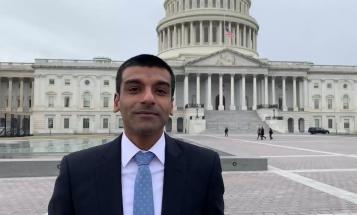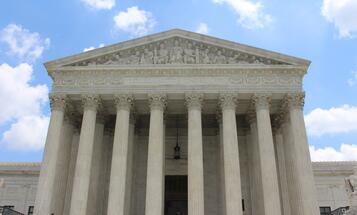
Contribution Limits and the Ostrich Court
The U.S. Supreme Court announced Tuesday that next term it will hear McCutcheon v. Federal Election Commission, a challenge to limits on the amount of money that a single person may contribute to all federal candidates and parties over a two-year election cycle, known as aggregate contribution limits.
The best case for preserving these limits may be the one that Justice Roberts and his fellow conservatives do not want to hear.
The Roberts Court is notoriously skeptical of restrictions on the use of private wealth to achieve political power. In Citizens United, the Court didn’t just strike the prohibition on corporations spending directly on elections. It also explicitly rejected (or in some cases re-rejected) rationales for regulating big money other than fighting corruption. And, it significantly narrowed the scope of what qualifies as the type of corruption that Congress or the states are empowered to fight, opining that “ingratiation and access are not corruption,” and largely limiting the legal definition to quid pro quo arrangements.
Citizens United’s expansive reasoning has led directly to the McCutcheon case and created a difficult landscape for even the most modest restrictions on the role of money. As Democracy 21 President Fred Wertheimer detailed Tuesday, reformers will argue that “[t]he aggregate limit on contributions by individuals is necessary to prevent circumvention of the limits on contributions to candidates and political parties and the prohibition on federal officeholders soliciting huge corrupting contributions.” Given the anti-regulatory orthodoxy dominant among the high court’s conservative majority, we can expect a skeptical audience for this line of reasoning.
But, there’s an even more compelling case for limiting the amount that the super-wealthy can funnel into political campaigns. To most Americans such limits aren’t just a secondary prophylactic—they’re a matter of basic common sense. In our democracy we (should) all come to the political table as equals, and we should not permit a privileged few to translate economic success (or even luck) directly into political power. No one person should have fifty, a hundred, or a thousand times more influence on elections or public policy than the rest of us just because he or she happens to be wealthy—that sounds more like plutocracy.
Unleashing more concentrated wealth into our political system violates the core American ideal of political equality, the basic principle of one-person, one-vote—the same concern that animates our efforts to protect every citizen’s right to vote and have that vote properly counted regardless of race, creed, or class. In a majoritarian democracy, all citizens should have an equal opportunity to influence the decisions that affect their daily lives.
Unfortunately, the Supreme Court has said more than once that we the people may not restrict the influence of big money in the name of political equality, twisting the First Amendment into a tool for use by the wealthy to dominate the political process.
The Court is dead wrong about this—and it’s up to we the people to fix that. We need a jurisprudence—and a new set of justices—that respects our right as citizens to wrest our politics from the grip of billionaires and moneyed interests. Or, we need to amend the Constitution to clarify once and for all that we the people have the power to forge a democracy in which the strength of a citizen’s voice does not depend upon the size of her wallet.



